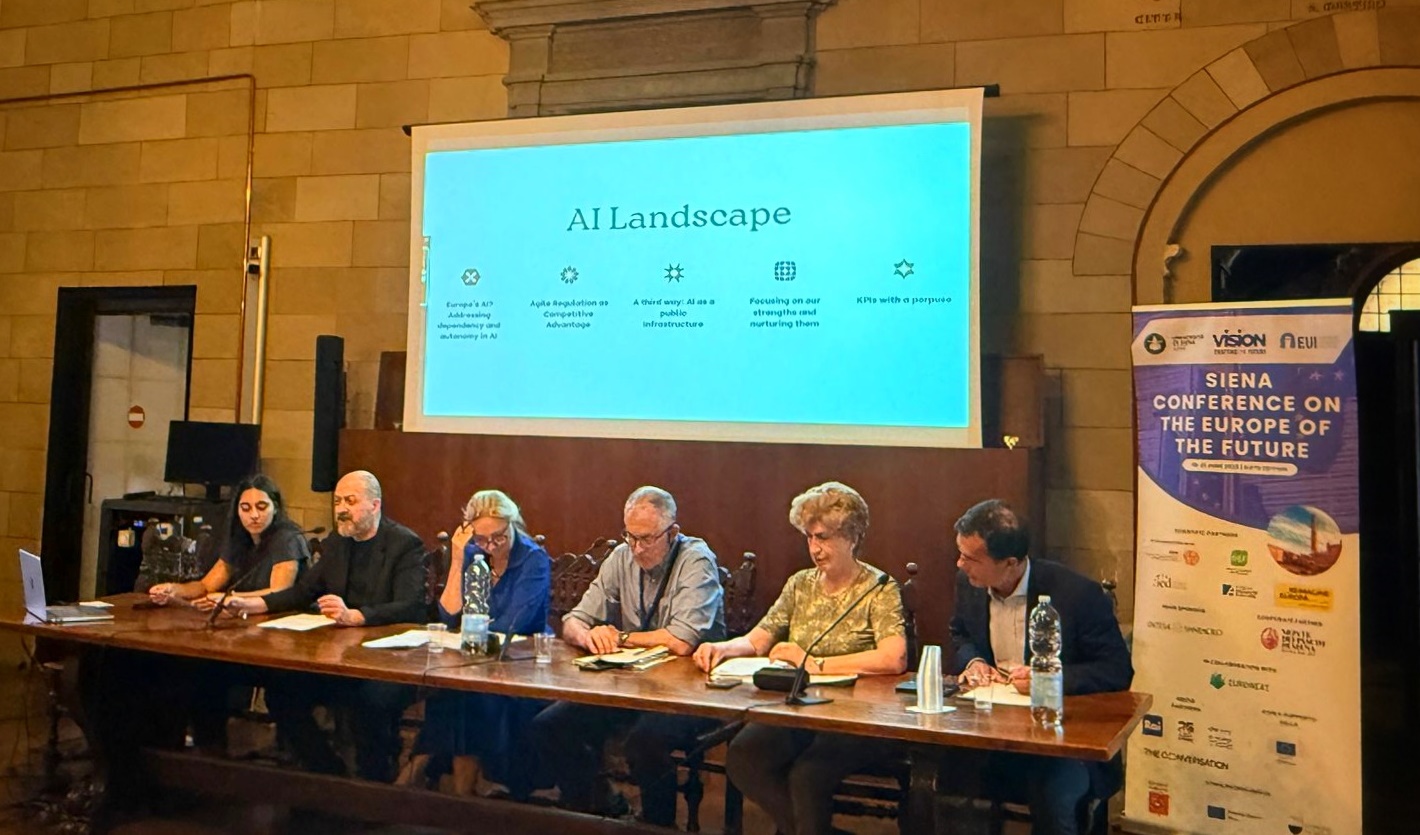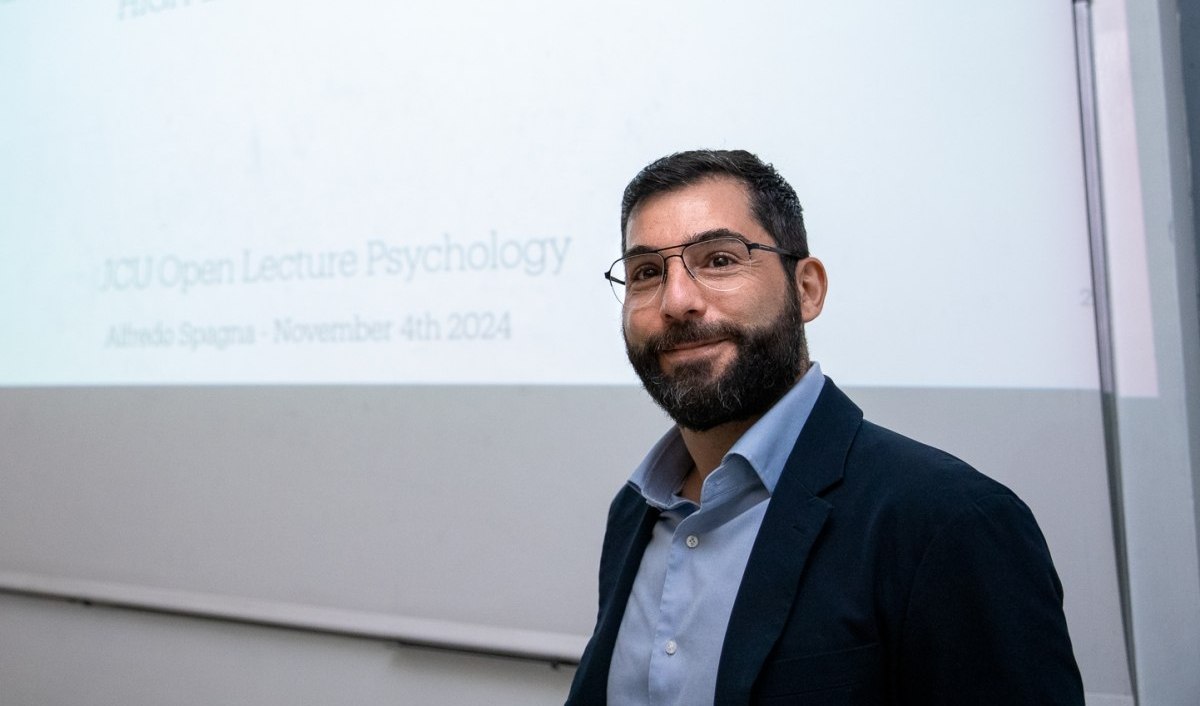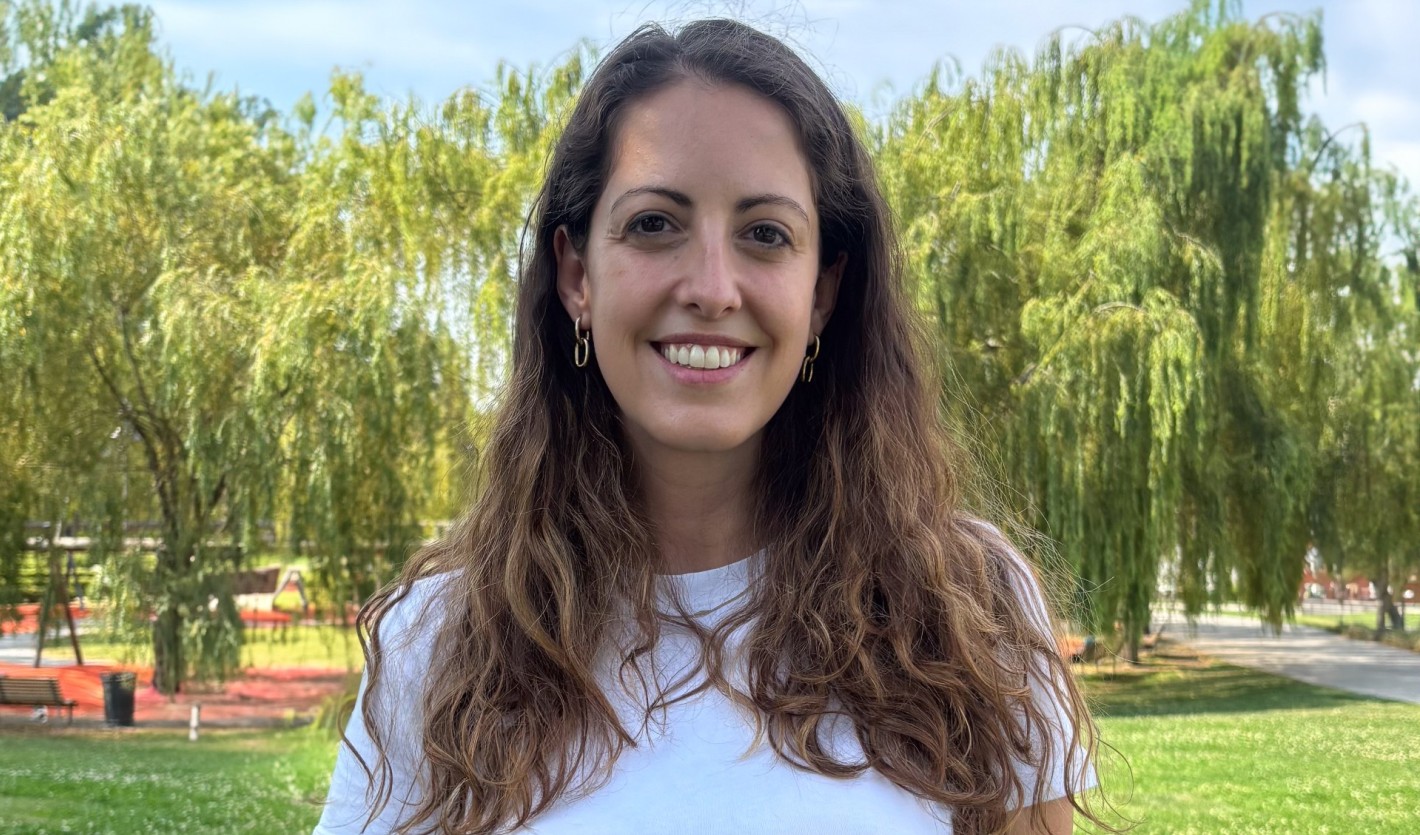Francesco Lapenta, Director of the JCU Institute of Future and Innovation Studies, took part in the VI Siena Conference held at the Certosa di Pontignano from June 19 – 21, 2025. This high-level, invitation-only event brought together senior policymakers, economists, scholars, and innovators under the title: “Policies, Leaders and Narratives to Navigate Perfect Storms and Land in the 21st Century.”
The conference focused on how Europe might respond to a set of rapidly converging crises from geopolitical fragmentation and economic competition to technological disruption and ecological instability, by developing coherent strategies, institutional frameworks, and public narratives capable of sustaining its role as a democratic, social, and regulatory power.
Director Lapenta served as appointed respondent, and co-coordinator, alongside Dr. Daniel Gros (Senior Fellow, Luiss School of European Political Economy, former Director CEPS) and Turi Munthe (journalist and founder of Parlia), in the working group “A European Way to AI.” The session explored the foundations of a sovereign and sustainable European approach to artificial intelligence. Discussions focused on the strategic importance of AI as both an economic driver and a governance challenge, and how Europe might assert normative leadership through investment in public infrastructure, interoperable frameworks, and regulatory clarity.
Drawing from those discussions, the group produced a working paper outlining a multi-layered policy framework. Among its core proposals: the development of public interest digital infrastructure to support European data sovereignty; a dual-track regulatory model distinguishing between general-purpose and mission-specific AI systems; and a rethinking of research and innovation funding to foster a distributed ecosystem of trustworthy, interoperable AI applications across sectors. The paper emphasized that Europe’s strength lies in institutional design, and that AI governance must become a tool not only for competitiveness, but for democratic resilience and long-term societal value creation.
Director Lapenta presented the group’s conclusions during the closing plenary. The intervention underscored the urgency of Europe developing its own AI architecture, not in imitation of American or Chinese models, but rooted in its legal, ethical, and institutional traditions.
Among the distinguished participants at the conference were:
Mario Draghi, former Prime Minister of Italy and former President of the European Central Bank
Romano Prodi, former President of the European Commission and former Prime Minister of Italy
Raffaele Fitto, Italian Minister for European Affairs
Teresa Ribera, Deputy Prime Minister and Minister for the Ecological Transition of Spain
Sandro Gozi, Member of the European Parliament and former Undersecretary for European Affairs
Barbara Kolm, Vice President of the Austrian National Bank
Eleonora Faina, Deputy Director General, Confindustria Digitale
Erik Jones, Director of the Robert Schuman Centre, European University Institute
Kalypso Nicolaïdis, Chair in Global Affairs, EUI School of Transnational Governance
Grace Ballor, Assistant Professor of International Economic History, Bocconi University
Gerlinde Niehus, Head of Strategic Analysis Capability, NATO
Amel Taleb, Adviser to the OECD Secretary General
Gregorio De Felice, Chief Economist, Intesa Sanpaolo
Carlo Carraro, Professor of Environmental Economics, Ca’ Foscari University of Venice
Bill Emmott, Chief Editor, The Economist
The Director is very grateful to the organisers of the Siena Conference, curated by the Vision Think Tank, in collaboration with LUISS University, the European University Institute, and the University of Siena.












